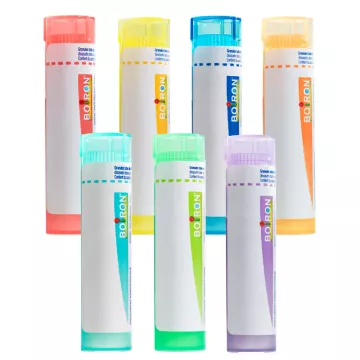
Acne is a skin condition that affects a large segment of the population, from adolescence to adulthood. This dermatological condition, often perceived as a mere aesthetic inconvenience, can in fact have profound repercussions on an individual's quality of life and psychological well-being. Acne is the result of a complex process involving the overproduction of sebum, bacterial proliferation and inflammation of the skin, leading to the appearance of pimples, blackheads and other skin lesions. Faced with this condition, a multitude of questions arise as to its origin, prevention and available treatment options.
What is acne and what are its main causes?
Acne is a common skin condition characterized by the appearance of pimples on the skin, particularly on the face, back and chest. It results from a combination of factors, including the overproduction of sebum, the blocking of hair follicles by dead skin cells, and the presence of bacteria called Propionibacterium acnes. Hormones, particularly during adolescence, pregnancy or certain medical conditions, can also play a crucial role in the development of acne.
How can acne be effectively treated?
Acne treatment varies according to severity. For mild to moderate cases, topical treatments containing benzoyl peroxide or salicylic acid can be effective in reducing lesions and preventing new breakouts. Oral or topical antibiotics are also an option for fighting bacteria and reducing inflammation. For more severe cases, drugs such as isotretinoin may be prescribed, although they require strict medical supervision due to their potential side effects.
Are there any natural remedies for acne?
Yes, some natural remedies can help manage mild acne. Aloe vera, known for its soothing and anti-inflammatory properties, can be applied to affected areas to reduce redness and inflammation. Tea tree oil is also popular for its antibacterial properties. However, it's crucial to use them with care and perform a skin test beforehand to avoid allergic reactions.
How to prevent acne?
Preventing acne requires an appropriate skincare routine and healthy lifestyle habits. We recommend cleansing the face twice a day with a mild cleanser to remove excess sebum and impurities. Avoiding frequent touching of the face can also reduce the spread of bacteria. A balanced diet, rich in fruit and vegetables, and good hydration play an essential role in skin health. Finally, the use of non-comedogenic products is crucial to prevent blocked pores.
What impact does diet have on acne?
Although diet is not directly responsible for acne, some studies suggest that certain foods can exacerbate or alleviate symptoms. Foods with a high glycemic index, such as refined sugars and bakery products, can stimulate increased sebum production, thus favoring the appearance of acne. On the other hand, a diet rich in omega-3s, antioxidants and zinc can help reduce inflammation and improve skin health.
What role does stress play in the development of acne?
Stress does not directly cause acne, but it can aggravate existing symptoms. Under stress, the body produces more hormones such as cortisol, which can increase sebum production and, consequently, promote the onset of acne. Adopting stress management strategies, such as meditation, regular exercise or relaxing activities, can help reduce its impact on the skin.
Can cosmetics cause acne?
Yes, some cosmetic products can cause or exacerbate acne, especially if they are occlusive or comedogenic, i.e. clog pores. It's advisable to use products labeled non-comedogenic that are formulated not to clog pores. What's more, it's crucial to remove make-up before going to bed, and to use products suited to your skin type.
Can acne be cured for good?
Acne is a complex condition, and its response to treatment can vary from person to person. For some, acne disappears with age or can be effectively managed with appropriate treatments, leading to long-term remission. However, it is possible for acne to reappear due to factors such as hormonal changes or stress. Continuous, adapted management is often necessary to maintain clear skin over the long term.
How important is the sun for acne?
Moderate sun exposure can benefit some acne sufferers, as it helps dry out pimples and has a mild anti-inflammatory effect. However, excessive exposure can worsen acne by causing overproduction of sebum and damaging the skin, leading to blocked pores. It is essential to use a sunscreen suitable for acne-prone skin, preferably with mineral and non-comedogenic filters, to protect against the sun without aggravating acne.
Can acne leave scars, and how can they be prevented?
Yes, acne, especially if severe or poorly treated, can leave long-lasting scars on the skin. To prevent scarring, it's important not to puncture, squeeze or scratch pimples. Acne treatments that reduce breakouts and inflammation can also minimize the risk of scarring. In the event of scarring, treatment options such as dermabrasion, chemical peels, or laser therapy can be considered to improve the appearance of the skin.